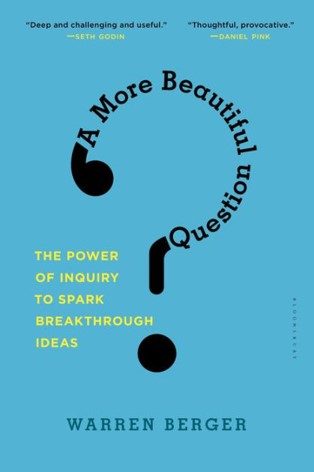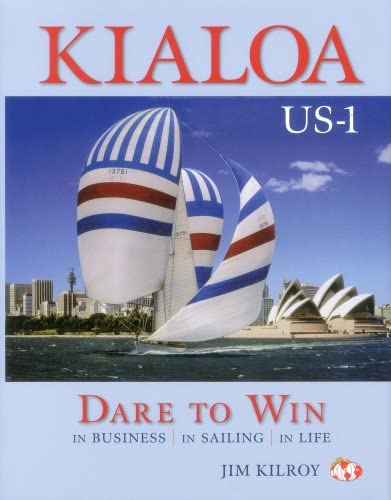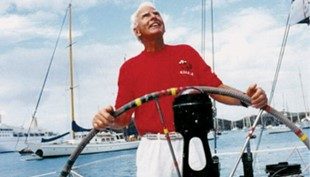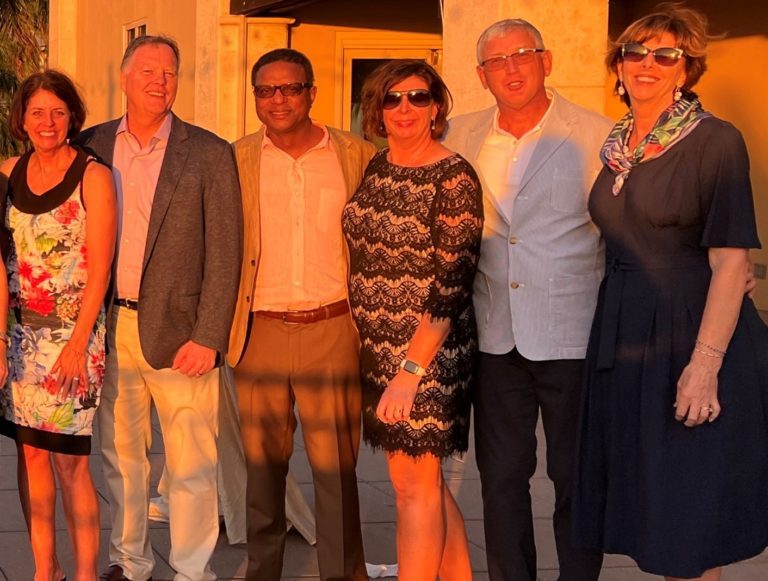1 hour and 3-minute listen
Portsmouth, New Hampshire
On today’s episode of the Positive Enterprise Value podcast, I am interviewing Jennifer A. Grossman who goes by the nickname JAG. JAG is the President and CEO of The Atlas Society. JAG lives in Malibu and travels so extensively, I'm not sure that she would say they have a headquarters anywhere. As you might have guessed from the name, The Atlas Society, drawn from the book Atlas Shrugged, the fantastic novel by Ayn Rand. The Atlas Society celebrates the remarkable potential and power of the individual and promotes learning about the capitalist system juxtaposed against the other kinds of systems in the world, so that young people in particular can make informed choices about which is the kind of system they want to live in and whether they're willing to make the decisions that allow them to be successful in a capitalist society.
JAG is a fabulously interesting person who, after an Ivy League education at Harvard, spent time at the White House as a speech writer. She also spent time in the private sector. She has also advised other for profit and nonprofit entities. I think she's been with Atlas about six or seven years. She's made enormous transformable- transformative changes there moving their curriculum to focus a lot of resources on young people and is very open and candid about her challenges in doing so over the last few years. And I think you'll really enjoy hearing her so without further delay, here's my interview with Jennifer A. Grossman, JAG.
Listen below or on Soundcloud here
You can also watch this short video written and narrated by JAG, which explains the who, the what and the why of The Atlas Society. Watch here
What I am Reading / Listening to
A More Beautiful Question: The Power of Inquiry to Spark Breakthrough Ideas (2014)
by Warren Berger
Contributed by Marisa B. Lister
What does the basic childhood skill of Questioning have to do with our adult business lives? Warren Berger explains just that in this groundbreaking book. Berger outlines a practical system of inquiry to guide you through innovative questioning. As he explains, “a beautiful question is an ambitious yet actionable question that can begin to shift the way we perceive or think about something—and that might serve as a catalyst to bring about change.” As children we start off asking hundreds of questions a day and as we enter school that number drops drastically. Yet Berger shows us that the most successful and creative people tend to be expert questioners. A More Beautiful Question is a great book for anyone looking to get better at their craft through learning how to ask the best possible questions “beautifully.”

Entrepreneur Owner-Manager Quote
“To say that last Thursday’s soiree was a BLAST would be an understatement! Thank you for the incredible evening to punctuate our amazing journey together. Your thoughtful toasts and gifts, along with all the love in the details, made the evening one to remember.”
-Cara O’Connor, Senior Vice President of Program Development of Wilson Language Training Corporation
Energy Creation
Since I have been working exclusively with other Entrepreneur Owner-Managers without pause for the last forty plus years, maybe that’s why people have been asking me recently about the tension between Entrepreneurial success and life complexity.
The question makes me think of a story that happened on anchor in the Tobago Cays.
Back in the 1980s and 90s I had the unbelievably good fortune to cruise the Caribbean from Venezuela to the BVI’s multiple times on passages on Kialoa III with Jim Kilroy her famous owner and ocean race winning skipper. Kialoa III had been converted to cruising once her racing days were dated, and Jim moved on to race Kialoa IV. He then moved Kialoa III all over the world, flying back to work from LA, and flying to the boat wherever she was to cruise with family and friends. He had been doing that schedule he told me since he was 29 years old. “JBK” as he was affectionately known, was a superstar entrepreneur, raconteur, high-performing real estate owner and developer. In real estate he had a vision and theory that after WWII that the areas around large southwest city airports made sense to be developed into light industrial office space. If you’ve been to LAX, I believe it’s accurate that he almost singlehandedly and against all odds (everyone doubted) developed most of what now looks like a city down Sepulveda Blvd with the large aerospace and technology companies.
Over his sailing career, Jim won the Bermuda Race, the Fastnet Race, and the Sydney to Hobart Race which are considered the three most important ocean races in the world. JBK ultimately even (reluctantly) took one of his companies public as a REIT called Kilroy Realty Corporation (NYSE-KRC) which has in the neighborhood of a $5 billion market value.
I was in my 20’s or perhaps 30's and, I don’t know why, but Jim was always super nice to me, really took me under his wing, taking my questions seriously, and generously treating me like a peer of his (which I was not). We had quite a few mornings together over coffee in the cockpit at sunrise while everyone else was asleep. When we were under way, he was all business. And when we were at anchor, he was…all business. If we weren’t sailing, we were scuba diving, running on the beach, exploring the back-alley nooks and crannies somewhere, drinking local beer at tiki bars on the beach, debating business plans—something. The crew had been alerted never to let JBK drink coffee at supper because just when everyone was exhausted and looking forward to rest—the mania would start all over again!
One morning anchored off Union Island, it was dawn, and I had been talking with Jim about life arc, career arc, the future, the usual stuff. I had made a comment about how I admired his success and wasn’t it wonderful having a yacht in the Caribbean. Jim looked out at the anchorage and said, “Pete, you know, I think you’re a pretty smart guy. At least average intelligence. So, you gotta be careful, you gotta be real careful, because the way you work so hard, you’re gonna be successful. And when business owners get successful, they can make their lives complex—by accident. Don’t misunderstand me here. Your life is gonna be complicated—that is, it’s gonna take a lot of hard work to live it. But complexity, whoa that’s a whole other thing. Complicated problems like your life are hard, but they are achievable with knowledge, skills, and effort. Complex problems involve too many unknowns and too many chaotic interrelated factors to reduce to skills and effort. Sailing a boat across a long ocean passage from port to port is complicated. Predicting weather is impossible because it’s so complex.”
He looked out over the anchorage as the sun’s rays lit up a motor yacht across the harbor on anchor. Their crew was wiping down the varnish, prettying it up for the owner, the generator was running and spitting water and steam, and we could see people moving on the aft deck. “You see that poor bastard over there in the big Hatteras (the motor yacht)? He’s probably real successful. Real successful. And what do successful people do? Well, he probably acquired that yacht as a way to get refreshed. But then he had to hire the crew, and then he’s got to make everything run just perfect to have a restful vacation. But you know what’s really going on over there? The generator is about to break down and they’ll run out of fresh water. The air conditioning will quit. The hired Captain is having an affair with the cook and they’re fighting. The guest head’s maceration pump just broke and it’s about to smell aboard. The rail needs a coat of varnish. And his wife wants to go ashore but the dinghy is out of fuel. That’s complex.”
“So, if you work real hard Pete, and you get real lucky, and you get successful, just remember: simple is luxury. Complexity is stress.” *
*While I went below that evening and actually took notes on this conversation, and this little essay is from those notes, I can’t say that I have it just perfectly right. Neither the story nor simplicity.




